This has come up before on this Substack, but it is worth thinking about again. Does art say more about the artist, or the viewer? Does the artist matter at all? Can a work of art be successful if it requires the viewer to have an extant knowledge of the artist’s life?
I don’t have answers to those questions, nor do I suspect you do. It’s interesting though, because the book I’ll be writing about today, Mister Magic by Kiersten White, is a very different book if you read the author’s bio in the acknowledgements section than if you don’t.
Pick a card, any card, and let’s get into it.
Spoiler Free Synopsis
Val lives a very secluded life on a remote ranch with her father. She’s not quite sure how she got there, or why there are so many restrictions on her, and she doesn’t remember anything from before they arrived. Still, life has been moseying along as life does. When her father dies, Val meets some new people at his funeral who all seem to know her, and suggest that prior to the ranch, she starred on a popular children’s television program, Mister Magic, and a new podcast will be bringing the cast back together to reminisce. Never mind that there is nearly no evidence of the show existing, nor that Val has no memory of these people or Mister Magic - with no where else to go and a curiosity about her origins, Val agrees to join them.
As a horror novel, things don’t get better from there.
If you want to read anything I’ve reviewed, why not get it through here so I get a little love too?
The Good
In this section and the next, I’ll talk more about the merits/demerits of the book, and I’ll get into the philosophical stuff teased above in a later section.
Mister Magic has a tight grouping of unique, fleshed out characters. I might be the only one, but I sometimes have trouble with books that have tons of folks to remember, especially when they pop up 19 chapters later and are just referred to by their first name. “Who the hell is Daniel? Why do we care if he’s here? And what are the other signs of early-onset dementia I’m exhibiting?”, you might hear me mutter.
Here, however, there’s a small grouping of main characters, mostly confined to a single location1. This can sometimes be limiting in a book, because more characters open up more narrative possibilities and interactions. Kiersten White is a talented enough author to not fall into that trap, and the characters here all feel interesting enough to hold their own. Val, Isaac, Javi, Jenny, and Marcus are all the story needs2. Each has a unique backstory and personality, they play off each other well, and Val’s perspective of each shifts often enough to keep the reader on their toes, and tense in a good way.
The story plays off an experience we’ve all had, known as the Mandela Effect, where a group of people remember an event, fact, or detail consistently, but incorrectly.3 It’s a neat trick, taking a benign but universal experience and stretching it out to horrifying measure. Combining banality with extremes gives a certain flavor to the tone of the book that’s very enjoyable.
The writing itself shines brightest when White tackles a scary scene. She has a horror movie director’s eye (pen?) and knows how to layer tension and eeriness until a *SNAP* of release. There was one scene, which I can’t describe for spoilery reasons, that actually made me jump. While I was reading quietly to myself. Which is both impressive and…embarrassing.
The Bad
At its core, this is a book about childhood, the relationship between children and adults, and…some other related topics. Mister Magic has a lot to say, but the last 20% of the novel, where these ideas are supposed to crystallize, feels unfocused. It feels as though it keeps heading towards a point, then veering off at the last moment to chase another idea, but never quite reaching any of them.
Similarly, and I will try to tread carefully here, the reveal of what exactly was going on with the show and character Mister Magic is muddled. Even the characters seem to acknowledge this, referring to “it” in various conflicting ways. Without ruining it for those who may read the novel, there is a cohort of characters that should know what is going on, and they stay quiet (and unnamed) throughout.
It occurs to me that in previous reviews, I’ve praised this kind of writing, and ambiguity did work in those cases (for me, at least). Here, it feels unsatisfying. It’s not a perfect science.
Memorable Quotes
This is a long one, but it’s my Substack so deal with it. The context here is a father writing a letter to his daughter, whom he fears he may never see again:
As a child, everything is absurd, made up of complex rules and systems you don’t understand, that you follow because you’re told to by the grown-ups around you. You’re given arbitrary rules that are arbitrarily enforced.
Maybe, like me, you’re given a god who watches everything, who also has extra sets of rules, just to make sure things go according to plan in this life and the next.
Maybe you’re given a parent who has no rules, who can’t be bothered to care, who leaves you on your own to try and figure out how to navigate this lawless and nonsensical reality.
Maybe your god is a lot like that, too.
Maybe you cling to the rules as a way to keep yourself safe. And it works, until it doesn’t.
Maybe you defy the rules as a way to push your own will outward onto the world. And it never works.
Either way, the rules defining this biting, lonely reality mold you, shape you, then break you. Tell you that you deserve to be broken, you’re better off broken, you should be grateful to be broken. God or society or some twisted combination of the two is watching.
Someone is always watching.
Personal Experience
I’m not going to spoil any plot points here, but I am going to share a perspective on the book that might change the way you read the book. If you want to go in to the story de novo, then skip this section. You have been warned.
In the acknowledgments section of Mister Magic, Kiersten White reveals that she was raised in a very strict and insular Mormon family, which she later renounced. You can read more about her experience here and here. She considers LDS to be abusive, misogynistic, homophobic, and to have (my words here) robbed her of her childhood.
Mister Magic, once you know all that above, takes on a whole new dimension. You can see the show as a direct metaphor for the Mormon church, and characters in the novel can be seen in a whole new light. The messages that White tries to convey towards the end of the book are also much more resonant.
I like Mister Magic much more in this light, but I don’t feel its fair to review it in that way. White’s childhood may have inspired her creation of Mister Magic, but it’s unreasonable that the consumers of the art should be privy to that knowledge. Shouldn’t a book be judged by what’s between it’s covers?4
Then again, I could be wrong. I always loved Christina’s World by Andrew Wyeth, and finding out that the faceless woman in the painting was a real person named Anna Christina Olson who had a muscle-wasting disorder that required her to drag herself across her family’s homestead only enhances it further.
For a more modern examination: can you enjoy “Not Like Us” if you don’t know anything about the history between Kendrick Lamar and Drake? That was the highlight of the Super Bowl Halftime show, so either the answer is yes or the entire country is much more in tune with hip hop culture than I am. Which is very likely.
It’s a tough question, one I’m not qualified to answer, and one that’s been debated forever by some of humanity’s greatest minds5. I’m certainly not going to find a conclusion here. All I know is that after I read the acknowledgements section, my entire view of Mister Magic changed for the better…but also the worse.
Who Should Read This?
Rating
Mister Magic has been bestowed the coveted honor of 3/5 Rainbow Randolphs
Coming Up
We’ll take a break from all the horror and darkness by reviewing a book about a serial killer who stitches bisected humans and animals together and displays them as artwork. A lighthearted romp!
Not entirely, they do move around a bit. 85% of the novel takes place in a single house, though. A single, very creepy house.
Don’t get me wrong, there are other characters as well, some very important to the plot, but those five are the ones you really need to know.
The namesake example is that many people remember Nelson Mandela dying in prison, when in fact he was released in 1990 and died in 2013, 23 years later. Another popular example is that they are not the Berenstein Bears, but rather, the Berenstain Bears.
Granted, the author’s backstory was technically between the covers, but you know what I mean.
Oscar Wilde felt the artist was secondary to the interpreter, while Nietzsche felt art does not seek witnesses or audience.

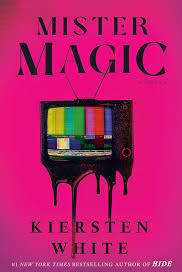


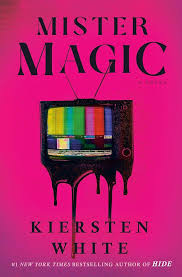


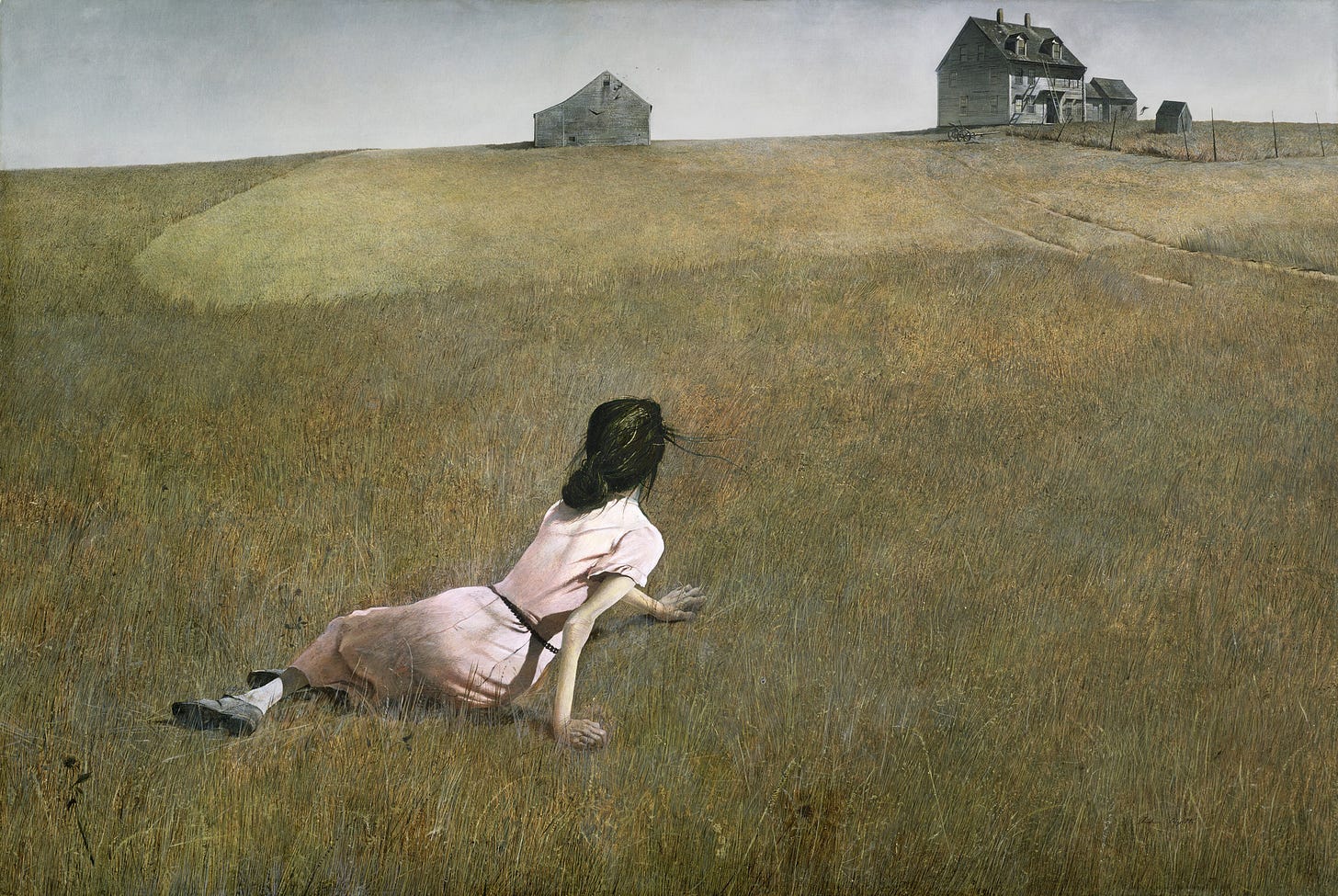
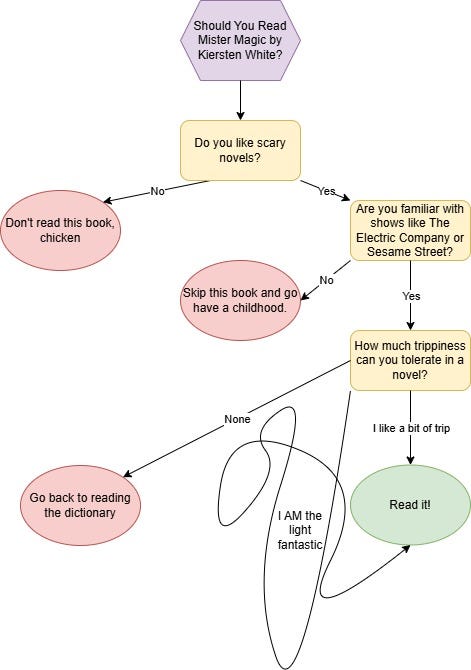
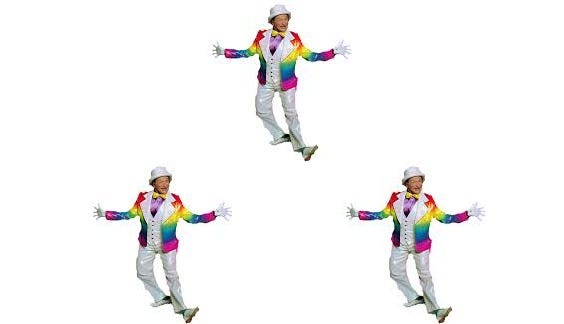

As you mentioned, I too was very disappointed at the explanation/ending. She could have taken this story idea to Stephen King levels but instead it fell flat. I do appreciate it more now knowing that this may be an allegory for her experience with Mormonism - I have lately been fascinated by the idea of authors working out own personal trauma & experiences through fiction